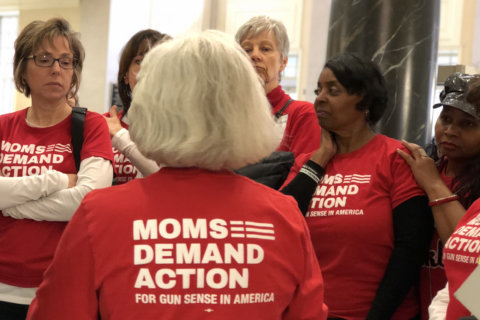WASHINGTON — Maryland will be getting a new law on Oct. 1 meant to help reduce gun violence.
But, even if that law were already on the books, it may not have stopped David Katz, who killed two people Sunday in Jacksonville, Florida, before taking his own life. The 24-year-old Baltimore video gamer had a history of mental health issues.
Maryland Gov. Larry Hogan signed the bill into law in April, creating “extreme risk protective orders” in response to February’s Stoneman Douglas High School shooting in Parkland, Florida.
“If you’re a family member or you’re law enforcement, and you walk into a home and see that someone is a danger to himself or others, you can seek an expedited court hearing to have guns removed and have that person put into the background check system,” said Kris Brown, co-president of the Brady Campaign to Prevent Gun Violence.
Court documents in divorce proceedings between Katz’s parents reveal that he was hospitalized twice in psychiatric facilities and had been prescribed an antipsychotic drug.
Advocates for gun control feel certain extreme risk protective orders will help curb unlawful shootings. “In those states that have these laws in effect — Connecticut is one of the longest — they have seen reductions in suicides and violent crimes,” Brown said.
Shootings such as Sunday’s attack at the video gaming tournament and February’s Parkland school shooting often spur discussions about possible ties between gun violence and mental illness.
The string of mass shootings in recent months nationally, and also just in Maryland, have led to calls for improved mental health care. But, mental health experts have said mental illness is not a reliable predictor of a potential shooter.
“The vast majority of violent crime in this country is not committed — based on records we’ve reviewed — by people with mental illness,” Brown said.









